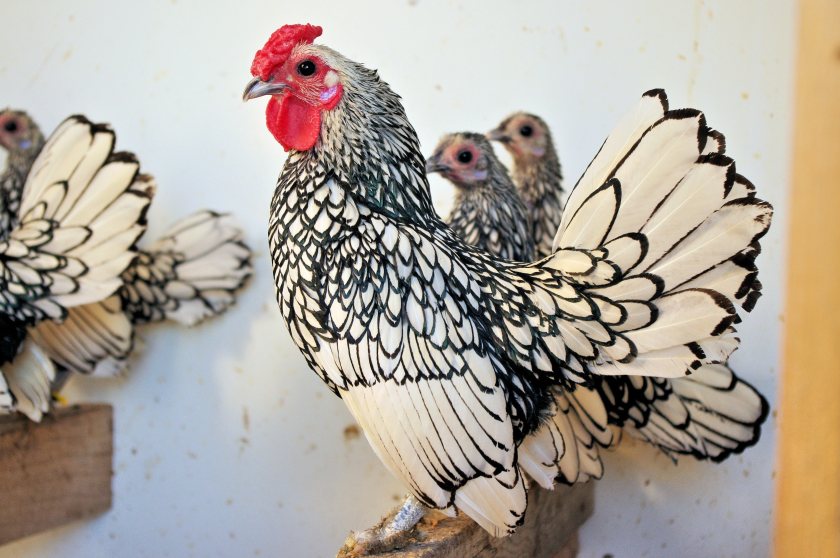
The UK’s array of rare and native poultry is under serious threat due to bird flu, the Rare Breeds Survival Trust (RBST) has warned in its latest Watchlist.
Under the continued threat of avian influenza, there has been a decline in active poultry breeding programmes across the country, the charity said.
The disease, which has aggressively swept the UK since 2021, has caused devastating declines in kept poultry and wild bird populations.
Because of this, all native poultry breeds have been moved to the 'Priority' category in its latest Watchlist update, which tracks all UK rare and native breeds.
Seven of the UK’s 11 native pig breeds also remain in this category, with most of the rare pig breeds now showing a sustained downward trend in total sow numbers.
The 'At Risk' Welsh pig, for example, has fallen from 457 sows in 2020, to 296 in 2023.
RBST chief executive, Christopher Price said the new Watchlist reflected the major challenges faced by people keeping pigs and poultry over the past two years.
This was mainly due to the avian flu outbreaks and the sustained increase in animal feed and husbandry costs, he warned.
"We have moved all native poultry breeds to the Priority category as we continue providing urgent support for these irreplaceable breeds’ conservation.
"Today’s Watchlist shows the outlook for our rare pig and poultry breeds is a great concern."
RBST Trustee Tom Davis, who is a farm manager at Mudchute Park & Farm in East London, said collecting comprehensive rare breed poultry data to steer conservation efforts was a serious challenge.
"We really need more people to be encouraged to keep these birds and work with RBST and breed societies to help conserve them for the generations of the future.”
The Watchlist shows which of the UK’s cattle, sheep, pig, goat, poultry and equine breeds are now the most urgent ‘Priority’ concerns, which remain ‘At Risk’, and which are currently non-rare native breeds.
It reflects robust measures of the genetic diversity within each breed as well as the numbers of breeding females registered.
However, there is some positive news for a number of other rare UK livestock and equine breeds.
The Greyface Dartmoor sheep has seen success, with the south-west longwool breed no longer categorised as 'rare' on the RBST Watchlist.
Since 2009 the number of flocks has increased by 155%.
